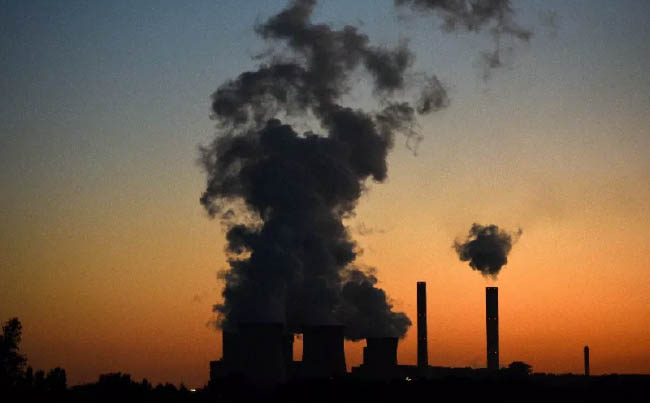Both government and citizens are aware that air-pollution have reached a serious threatening level in Afghanistan but knowingly underestimate the deteriorating issue! thousands of people are suffering from health issues such as cancers, heart and respiratory diseases that air pollution brings, and in fact the danger of air-pollution became as deadly as terrorist in our country. As ranked by WHO, Mazar-e Sharif and are Kabul are graded the ninth and tenth most polluted cities in the world while Onitsha, a fast-growing city in Nigeria, got the first place in the world. As a result, the toxic particles reached – up to 1000 mg per cubic meter – in Kabul. While, as expert says anything over 300 mg per cubic meter is considered harmful to people's health.
The blamable factors for the air pollution is the enormous amounts of smoke produced by badly maintained vehicles, factories, public baths, lack of waste management system and the use of coal for heating in winters. Improper traffic system and its inadequate and unprofessional personnel are adding fuel to the fire. There are no any appropriate engine fitness inspections or restriction for vehicles producing the cloud-like smokes. On the other hand, the streets in Kabul represent the dirtiest streets of the world. The vehicles running on the shabby, rough and tough roads blow dust particles, waste materials and garbage which make breathing almost impossible. These roads and streets are the main sources of various kinds of deadly germs causing fatal diseases each day to hundreds of people including children and other volatile groups.
With growth of population and poverty, it seems that the problem is rapidly worsening in Afghanistan, abnormally in Kabul. Dozens of the citizens die and thousands others suffering from various types of diseases linked to polluted weather. Children exposed to heavy traffic fumes today will have smaller lungs, unhealthy brain and be more vulnerable to respiratory and heart diseases in their later years. It means, if we ignore the issue now, we are storing up a health time-bomb for the future, guaranteeing that hospital wards will overflow of wheezing people with hearts and lungs permanently damaged just by living in cities. The vast costs to the economy of caring for an increasingly infirm older population will have to be met later.
If population density and urban disorders persist like this, then we not be able to a regain a healthy environment for living in the near future, the problem is that when a city develops in an unplanned way, the in charge authorities in this section cannot move in parallel with population density. Now, the Kabul city has around seven million populations while it doesn’t have the capacity of more than one and a half million people! seventy percent of Kabul city has been built in an unplanned manner with unstandardized facilities. Harmful telephonic-waves, voice pollution, lack of required greenery and more importantly the exacerbating air-pollution have turned the environment into a crisis, along with other concerns, including security, immigration and unemployment.
In winter seasons, the vast majority of people burn coal and wood to heat their homes – a move that seriously impacts the quality of air. By entering into this season, the dilemma also enters in large cities, especially Kabul covered by a layer of smoke and dust. This system of urban life which use unpurified coal for heating is not standard and neither proposed any proper alternatives to lower air pollution in the cold season.
Public hospitals and private clinics are full of patients due to air pollution during the winter. Indira Gandhi Children's Hospital (IGCH) officials say that, over 300 patients come to the hospital with respiratory diseases daily. Using low-quality fuels for warming houses in some towns and big buildings in winter is one of the main causes of polluted air. Hospital officials say most of the patients are children. According to scientists in the field of medical research, twenty percent of cancers around the world are caused by harmful gas that is exists in the space. air pollution and harmful gas in the air also bring up asthma and heart diseases, strokes, premature mortality, mental illness and neurology, and maternal problems.
Home » Opinion » Deadly Silence Against Air-pollution
Deadly Silence Against Air-pollution
| Mohammad Zahir Akbari

